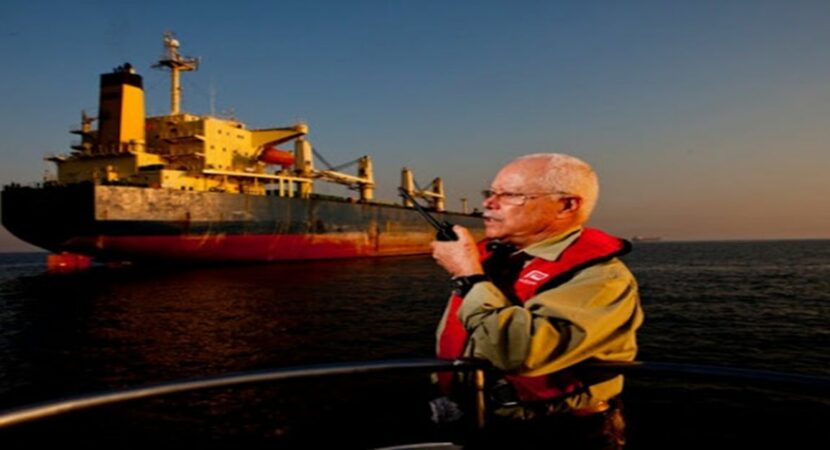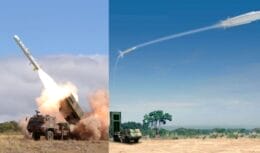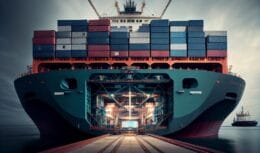
The pilot profession is one of the most desired by seafarers. “It is unreasonable for a professional who handles ships to have a salary of up to R$ 300”, says the consultant. CONAPRA strikes back
Get to know the profession of Pilot of Ships, which in an interview with the program Direto ao Ponto, the lawyer and consultant in infrastructure and logistics Evaristo Pinheiro said that the professional receives a monthly salary of R$ 50 to R$ 300 in Brazil to work in docking and undocking maneuvers of ships in ports. Watch the video with Evaristo Pinheiro talking about this cost here.
Read also
- Siem Offshore, which has bases located in Macaé, closes a support vessel contract with Total
- Port dispute: ES government proposes new Gas Free Market law and ICMS reduction on bunker fuel to increase port activity in the state
- The Federal Government announces an increase of up to 40% in the fleet of ships for Brazilian cabotage and the naval industry envisages a PL that can favor ports, generating jobs and less dependence on land transport by trucks
Pilots are, therefore, the “guides” or holders of local knowledge, rules, natural conditions and specific risks of each port region. The Ship Pilot professional is called upon whenever cargo and passengers need to travel safely and in an organized manner during arrivals and departures.
Despite being the holders of knowledge and of great responsibility in the Pilotage Zones, the Pilots are not the “owners” of the maneuvers, nor do they establish the safety rules and norms. Pilotage is a profession regulated by the Maritime Authority, exercised by the Navy through the Directorate of Ports and Coasts (DPC).
According to the lawyer and consultant in infrastructure and logistics Evaristo Pinheiro, currently, the Pilot in Brazil receives a salary of R$ 6 to R$ 10 per ton transported by the vessel.
For Pinheiro, the reason for the high price of pilotage in the country, which compared to other countries is up to six times higher, is due to the lack of specialized professionals in the market, in addition to the company that needs the service not having freedom of choice when hiring a pilot.
The specialist defends the free choice of companies to hire the pilotage service, for which one of the solutions would be to regulate the bill authored by Deputy Alceu Moreira (PL 4392) that works in line with the service offer, foreseeing changes in the Waterway Traffic Safety Law (Law 9.537/1997) and in Law 10.233/2001, which created the National Agency for Waterway Transport (antaq).
The project also guarantees more transparency in the contracts that are made between the Pilot and the company, where currently the exporter never finds out how much he was charged for pilotage of his cargo. “The proposal brings more transparency. According to the text, the pilot will have to account for his contracts, inform Antaq, in this case, the price, which contract he practiced”.
Note of clarification from CONAPRA
Regarding the report, the National Pilotage Council released the following note to the CPG:
First, there is a misunderstanding, as it is a question of the price of the service, which is not high compared to what is practiced internationally and what the terminal charges to ship the cargo and the ship's owner to transport it. In Santarém (PA), for example, the soy terminal charges BRL 44 per ton. Pilotage costs less than on the Mississippi River (USA), to navigate safely more than twice the distance (500km). In Santos, the price of pilotage is R$ 0,35 per ton of soybeans, whose price in the last month rose from R$ 2.166 to R$ 2.600.
Second, practical does not receive a fixed monthly salary from an employer. He is a partner in a pilotage company. In the largest ports in the country, the pilot is as well paid as successful professionals in the private sector, to avoid accidents that can pollute the environment, cause deaths, damage public and private facilities and even close a port for the economy. As in other professions such as doctors and lawyers, the amounts received depend on the volume of work, and can vary greatly from one month to the next and between pilotage zones. It is important to remember that there are also small ports, with lower remuneration, due to the low movement of vessels. In these cases, there may even be extinction of the pilotage zone, as happened a few years ago with Pilotage in Camocim; more recently, with Pilotage in Ilhéus; and with the Praticagem de Sergipe, in extinction.
Regarding the supply of professionals, who defines this need is the Maritime Authority. But Pilotage do Brasil considers the number of 635 pilots sufficient to meet the demands of ships 24 hours a day, even at times of peak service. Brazil is the third country in number of pilots, behind only the United States (1.200) and Germany (745).
Finally, regarding the ship owner not being free to choose the pilot who will provide the service, Pilotage do Brasil defends this model in which the shipowner can only use the pilot at the time in the work schedule. This allows the pilot to always make the safest decision for navigation, being immune to commercial pressures from those who hired him. It is a well-established model around the world for preventing accidents. In addition, the scale allows the professional not to work so much, to the point of becoming fatigued, nor too little, to the point of losing the necessary experience in different ships and maneuvers.
Interested in the profession? Check the requirements for the Pilot Practitioner Contest in Brazil
Do you want to dock and undock ships in Brazilian ports? To be a Pilot in Brazil, you must be over 18 years old, have an officially recognized higher education in any area and be a waterway worker in the deck or machinery section with a level equal to or greater than 4, Pilot, Pilot Practitioner or have experience at sea, which must be at least a qualification in the category of Master-Amateur, required to conduct small sport and recreational vessels in the open sea.
In addition, the candidate must not be retired military due to permanent disability or retired civilian due to disability and must be up to date with military and electoral obligations.
Access to Pilotage in Brazil is now extremely transparent and democratic, which motivates people of all ages and from all regions of the country to study not only to obtain the long-awaited approval, but also to secure a position in the Pilotage Zone of their choice.











